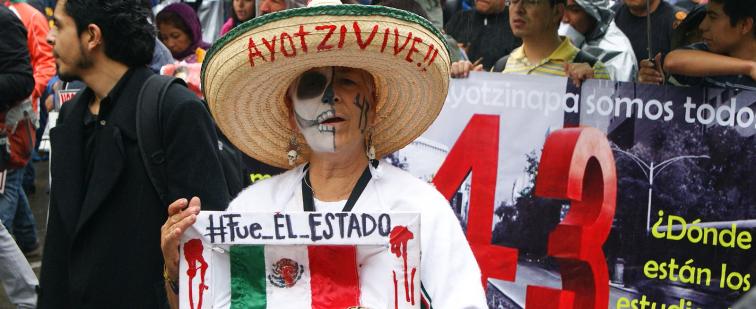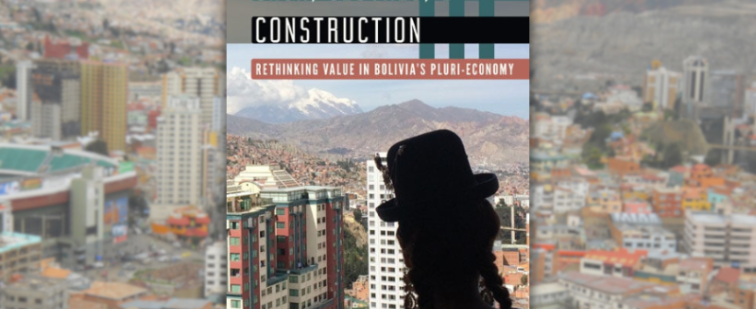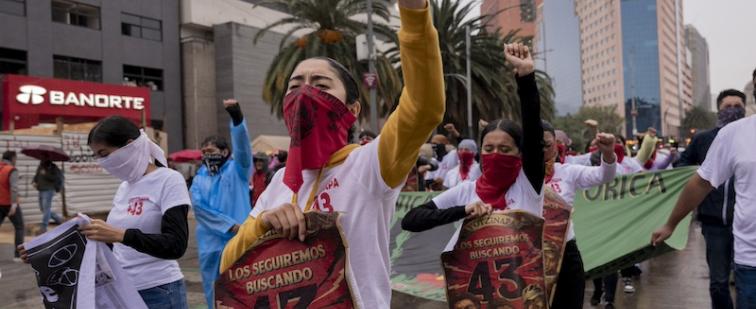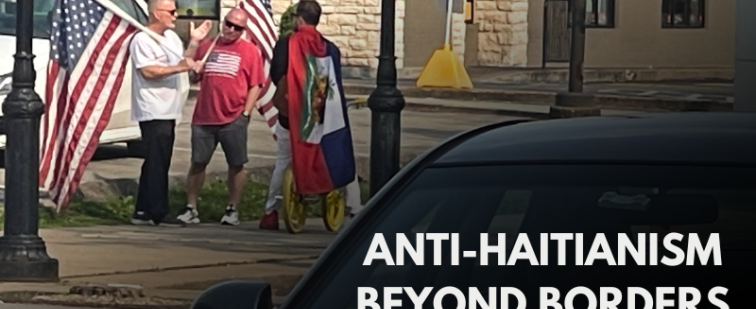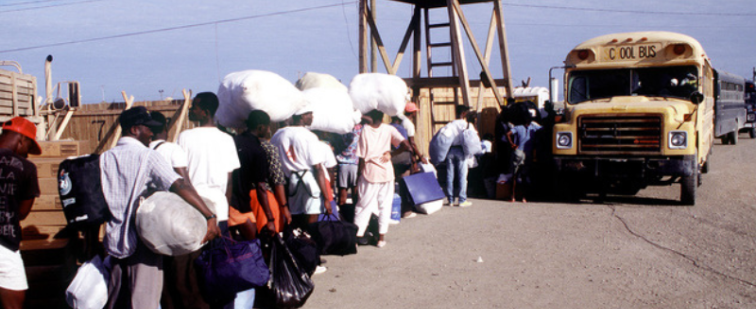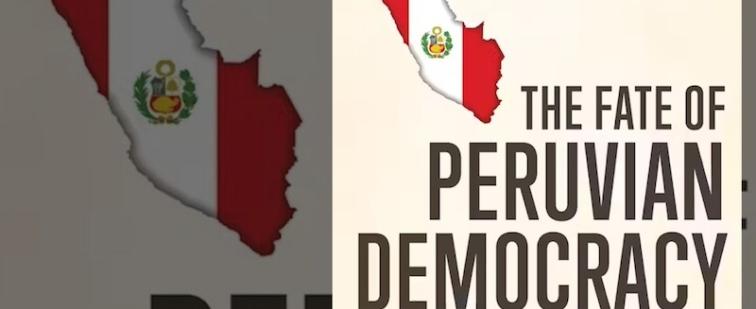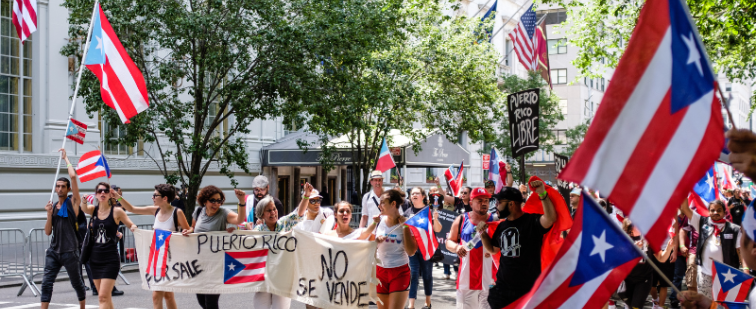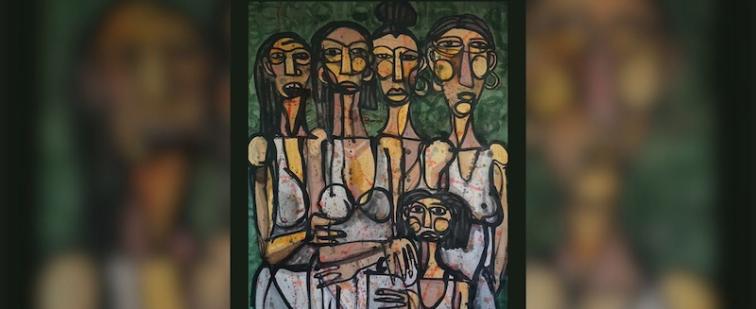Home
Border Wars
June 22, 2011
There have been different responses to increased immigration over the Arizona-Mexico border on the Tohono O'odham Nation. One has been the dramatic increase of federal immigration enforcement agents and technology on the Nation. The other has been an attempt to put water along migrant routes, in attempt to stop migrant deaths. All of this has taken place on a Native American reservation, whose aboriginal land has been divided by the U.S.-Mexico border.
Mexico, Bewildered and Contested
June 21, 2011
Central American migrants are the most vulnerable of the vulnerable. Their resources are few and once they leave home they have no legal rights. Crossing Mexico, they are routinely held captive and extorted, not only by criminal gangs, but by unscrupulous public officials, private guards, transporters and even their own guides as they make their way northward. Sometimes, they simply disappear—not infrequently into enforced prostitution or perhaps into common graves.
Cuadernos Colombianos
June 20, 2011
For almost a century the dominant classes of Colombia have refused to accept a meaningful land reform as a way to end the civil war. What the Santos government needs is a change of course based on the acknowledgment that this protracted war has damaged enough Colombia’s social fabric.
Rebel Currents
June 17, 2011
Over the past 40 years, Bolivia has experienced an average of one “social conflict” per day, according to a recent report that measures episodes of conflict reported in the press. Underlying these statistics is the defining role played by Bolivia’s social movements—arguably the most powerful and combative in the hemisphere—in the country’s political history.
Traffick Jam
June 16, 2011
The ads that appeared in Drug Trade News, a pharmaceutical industry publication that existed from the 1920s through the 1970s, are striking today for their tone, tenor, racism, or maybe what could be described as devastating privilege. They reflect a U.S. drug industry that confidently presumed its dominant role in the global capitalist market in the 1960s, even as the world was rocked by popular rebellions.
Border Wars
June 14, 2011
On June 9, Alabama governor Robert Bentley signed into law what many see as the harshest anti-immigrant bill passed thus far by any U.S. state. H.B. (House Bill) 56, also known as the “Beason-Hammon Alabama Taxpayer and Citizen Protection Act,” exceeds Arizona’s infamous S.B. 1070 in its ambition. Failing federal intervention to block it, the bulk of the law is scheduled to go into effect on September 1.
Mexico, Bewildered and Contested
June 14, 2011
Last weekend, while in California, Mexico’s free-trading, conservative president, Felipe Calderón identified some of his principal political enemies: U.S. Arms Dealers, the Institutional Revolutionary Party (PRI) and Mexican pacifists. He named no names, but the identities were clear.
He was invited to Palo Alto to deliver Sunday’s commencement address at Stanford University. A portion of his speech included a sharp, campaign-style attack on Mexico’s once, but no longer dominant PRI.
Cuadernos Colombianos
June 13, 2011
State-sponsored crime is neither unique nor exceptional. In fact, as the prominent sociologist Charles Tilly pointed out, the history of the nation state has been violent. This violence has been harnessed over time to serve the interests of capital—as was the case of Europe.
Colombia is no exception.
Border Wars
June 11, 2011
On June 10, a new movement was born in Mexico. A peace caravan of hundreds of people from all over the country arrived to the border city of Ciudad Juárez to sign a national social pact with the goal of ending the militarized drug war in Mexico. This drug war has killed approximately 40,000 people since Mexican president Felipe Calderón took office in December 2006. This pact was appropriately signed in brutalized Ciudad Juárez, an epicenter of drug war-related violence, where 7,000 of these killings have taken place.
Rebel Currents
June 9, 2011
Last week Brazilian President Dilma Rousseff launched an ambitious program to eradicate extreme poverty by 2014. Under the “Brazil Without Poverty” initiative, the government will spend $12.5 billion a year to expand cash transfers and health, education, and job training services for some 16 million people (8.5% of Brazil’s population) with incomes of up to $44 per month, who have failed to benefit from Brazil’s rapidly expanding economy.
The announcement comes as Rousseff continues to be challenged, in the international spotlight, by conflicts that expose the high cost of economic progress borne by Brazil’s most impoverished and indigenous communities.

